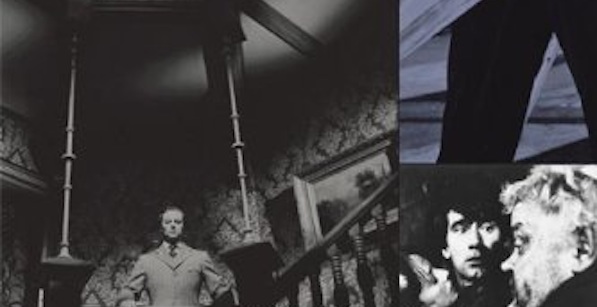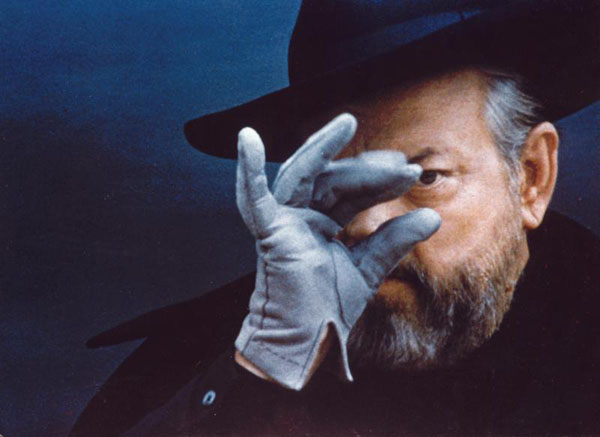
On the occasion of Orson Welles’ 100th birthday on May 6, 2015, I sat down with film critic Jonathan Rosenbaum, author of Discovering Orson Welles, to discuss the legacy of this iconic yet profoundly misunderstood director.
Festivals and events celebrating the Welles centenary, such as the It’s All True documentary film festival in Brazil (video of his talk can be watched here) and a conference at Indiana University. Welles centenary celebrations are happening all over the world; a comprehensive listing can be found on Wellesnet, the Orson Welles web resource. On May 9, Rosenbaum will appear with Welles’ collaborator Oja Kodar at the Welles Centennial Festival in Woodstock, Illinois, where Welles spent his formative childhood years at the Todd School for Boys.
In our conversation I asked Rosenbaum whether Welles’s full career has been taken for granted given the canonical stature of Citizen Kane. Rosenbaum responded:
“One of the things I most like about Welles is that we can never take him for granted. We can never have a sense of closure where we have all of Welles up on a shelf. Each time he’s making a film, it’s as if he’s never made a film before. And that’s very exciting. But it also means that we’re not equipped for the films when we first see them. We need to get to know them before we can really deal with them.”

This initial misapprehension of Welles films applies to Rosenbaum himself; he admits to not fully appreciating films like Touch of Evil and F for Fake upon initial viewings. So much of what impedes our understanding of Welles is due to prevailing assumptions over his tumultuous filmmaking career, that he could never match his initial breakthrough of Citizen Kane. Rosenbaum reflects:
Because Welles is such a mythical figure, people wind up being involved in the same contradictions that plagued his career. Like, they keep saying, “Why couldn’t he make another Citizen Kane?” He never made two of anything. I mean, he made different version of the same film, but he didn’t want to do the same thing twice, and why would we want two Citizen Kanes. Isn’t one enough? But this hurt him commercially because the whole idea of being commercially bankable is doing the same thing over and over again. But there’s a big difference between seeing Welles as a failed Hollywood director and a successful independent filmmaker who sometimes used Hollywood equipment.”
Rosenbaum goes on to delve into specific characteristics of Welles’ filmmaking, focusing particularly on the director’s rare passion for editing. He remarks on Welles’ filming of actors: “He used to say (to actors), ‘You’d better be good in this scene or else I’ll have to use a close up.'” He also accounts for Welles’ disdain for the directors Michelangelo Antonioni and Alfred Hitchcock, informed in part by Welles’ profound belief in filmmaking as a social act, a form of collaboration between the filmmaker and the audience.
Read more from Jonathan Rosenbaum at his website jonathanrosenbaum.net.
Kevin B. Lee is Chief Video Essayist at Fandor. He has made over 250 video essays exploring film and media. His award-winning “Transformers: The Premake” was named one of the best documentaries of 2014 by Sight & Sound Magazine and played in several festivals including the Berlinale Film Festival Critics Week. Follow him on Twitter at @alsolikelife.



